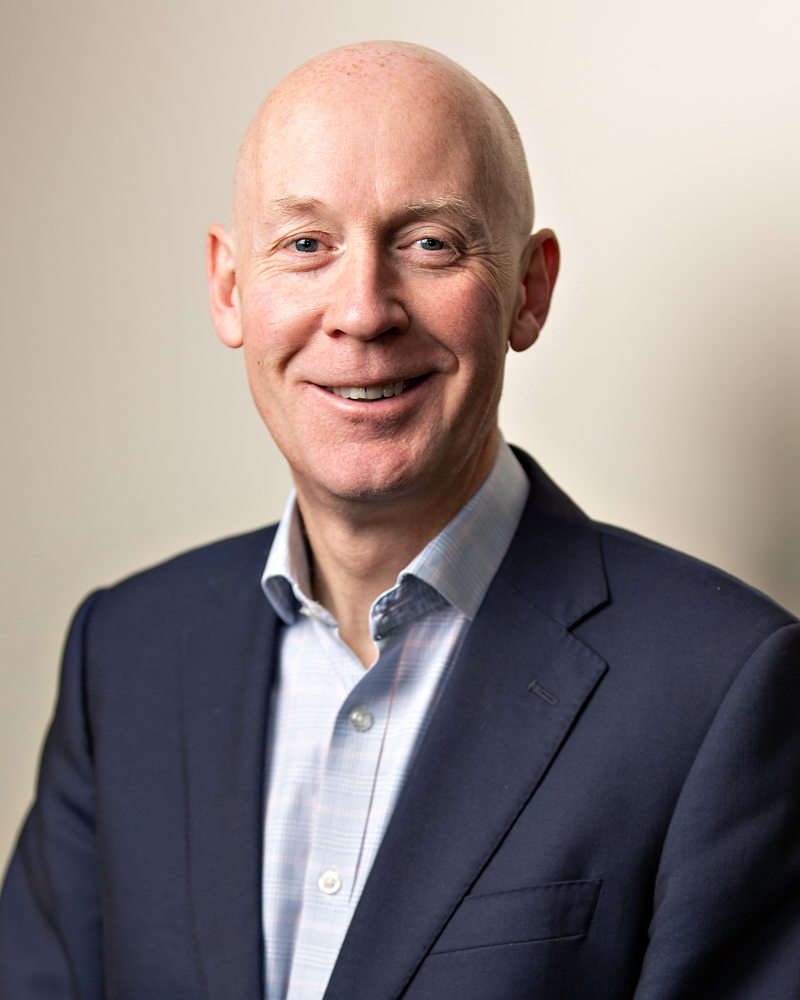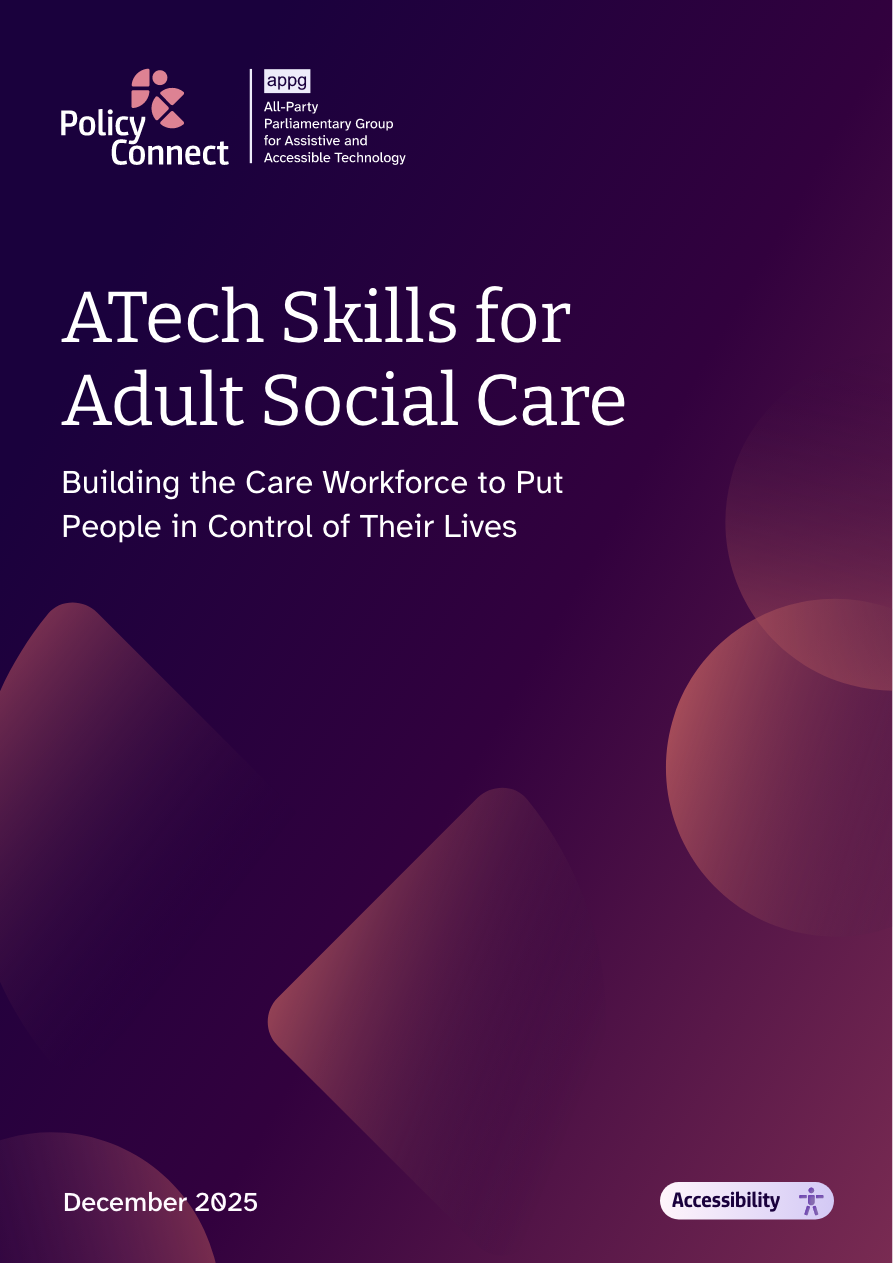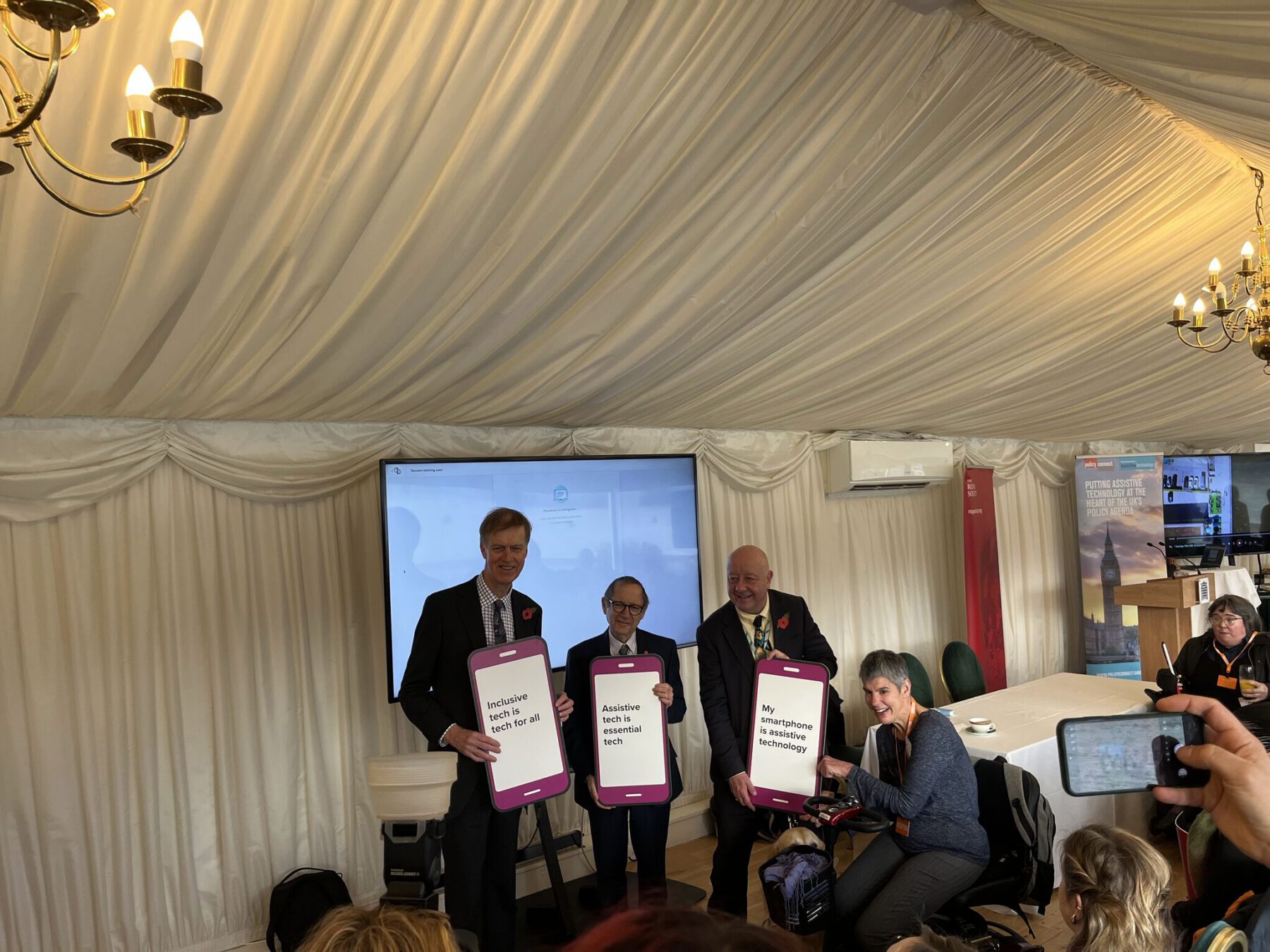As Policy Connect becomes a Disability Confident Employer, CEO Jonathan Shaw reflects on his experiences as a policymaker and employer.
In October 2008 I was an Environment Minister preparing for an important round of EU negotiations, when Gordon Brown rang me during his reshuffle. It was late in the day, the sackings had taken place, so I could be reasonably confident I wasn’t for the boot. The Downing Street switchboard put me through to the PM, and that familiar deep Scottish baritone voice came on the line with “how’s the family?”- I think he heard my reply. Gordon then “asked” me if I would pack my bags at DEFRA and join the Ministerial team at the Department of Work and Pensions.
When I arrived at Caxton House the Secretary of State informed me I would be the new Minister for Disabled People. It was very exciting to have a Government position that I had some practical experience of – I’d spent over a decade in social care before being an MP, including four years as a care worker on the front line assisting people with physical and learning disabilities. I couldn’t wait to get started.
The first occupant of the job in 1974 was the late Alf Morris MP. Not only was Alf Britain’s first Minister for Disabled People, but he was also actually the first such appointment anywhere in the world. It was probably to be expected, as Alf had written his own job description by successfully introducing a Private Members Bill which saw far-reaching changes to the lives of disabled people. Alf’s Chronically Sick and Disabled Persons Act (CSDPA), which celebrates 50 years this year, included: support in the home such as care, meals, adaptations, and telephones; education provision was to be given to children with autism and dyslexia; access to public buildings was required; and the blue parking badges came in along with what we know today as the motor ability scheme. Fundamentally, disabled people were asked and involved in decision making about the provision of services provided for them.
Alf had become Lord Morris by the time I had taken up the reins at the DWP. However, it was my great fortune to receive his wise counsel on a regular basis. To mark the 40th anniversary of Alf’s legislation I delivered a lecture setting out the challenges and opportunities to reach equality for disabled people. Alf, along with several former holders of the office were present. In that lecture, I looked forward to possibilities as London was gearing up to host the 2012 Olympics and Paralympics. The bid held the promise to make our capital city the most accessible Games ever. I think we achieved this, and we witnessed amazing achievements by Paralympians, who were both inspiring role models for the next generation of disabled athletes, and challenged the attitudes and perceptions of the whole community about the capabilities of disabled people. 2012 was Britain at its best on so many levels, and it was a privilege to play a small role supporting the late Tessa Jowell and her amazing work as Olympics Minister.
In the same lecture, I contrasted the soaring hope and ambition of what London 2012 could do for disabled people with the grim reality of hate crime. I drew attention to the harrowing case of Fiona Pilkington and her disabled daughter Francecca Hardwick. In 2007, after years of torment, Fiona Pilkington killed herself and Francecca. Thirteen years on, little has changed and such cases persist. A report by the charity United Response showed hate crime against disabled people rose by 12 % across England & Wales in 2018/19.
It’s for people like Francecca, who are persecuted purely for being disabled, that we must not renege on our commitment to equality. It is for all of the disabled people who have suffered taunting, abuse, and violence because of their disability that a commitment to real equality is about a change in attitudes and behaviour as much as it is about the practicalities of access to buildings.
As well as prosecuting more of the perpetrators of hate crime, an important part of the behaviour change needed to improve attitudes, perceptions, and equality for disabled people is better employment opportunities. We accept there are huge benefits of work to us as individuals. But the benefits of a diverse workforce to individuals and wider society, whilst becoming more understood, still has a long way to go.
Governments can help disabled people a lot when it comes to employment prospects. Over the years through different government programmes, albeit of varying performance, the employment position for disabled people has improved. And with that, the expectations of disabled people and their families have risen. For example, Access to Work is helping over 30,000 disabled people, and nearly 100,000 young people with a disability are attending university thanks in large part to the Disabled Students’ Allowance. Yet there remain gaps between disabled and non-disabled people in the employment and university education attainment and outcomes. At Policy Connect we are undertaking research to recommend improvements to both employment opportunities through the use of technology and students’ experience of higher education. I am confident our work can make a real difference to improve prospects in both these areas.
The coronavirus pandemic will have an immediate and long-lasting impact on the life opportunities for all parts of society, with some groups experiencing even greater degrees of disadvantage including joblessness. This crisis makes the Government’s promised National Strategy for Disabled People all the more vital. Policy Connect are pleased to be contributing to the development of this work and look forward to its publication in 2021. In the meantime 2020 is significant for equality legislation, not just for the 50 years since the Chronically Sick and Disabled Person Act, but the 25th anniversary of the Disability Discrimination Act as well as 10 years since the establishment of the Equality Act. All of which are highly significant pieces of legislation that have importantly enjoyed cross-party support to push the equality agenda forward.
However, as important as developing policy is to bring about practical change for disabled people. From my experience – both as a politician and leading a think tank – there’s nothing quite so immediately rewarding than giving someone a job, then to see that person grow and develop. I am therefore proud that Policy Connect is not only advocating, through our events and reports, policies to improve the lives of disabled people, but are taking the important steps of broadening the diversity within our team of twenty people. We have signed up to the Government’s scheme of being one of 17,000 Disability Confident Employers. This means we employ disabled people including colleagues who receive Access to Work grants, and we all reap the rewards of their talent and expertise.
Alf Morris died in 2012, he was a remarkable man who led a remarkable life. From his poverty-stricken upbringing in Manchester, he witnessed the disability of his father who lost a leg and an eye and was gassed during the First World War. When his father died his mother was stripped of his war pension. Alf put right that wrong through his 1970 legislation and much more. Today I think he would acknowledge the progress our country has made to the cause he dedicated his life’s work to, yet he would remain restless, because for too many disabled people that progress can be painfully slow. In these turbulent times, we look to our leaders to steer the country through to better times, but the Government can’t do it alone. As citizens and employers, we can help by simply finding out more about how to become a Disability Confident employer: this will make a difference, by enriching our businesses, and making us agents for challenge and change.





